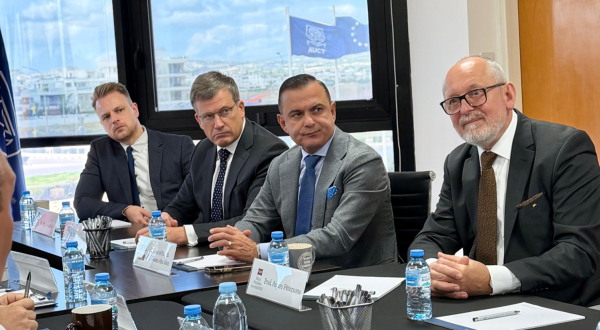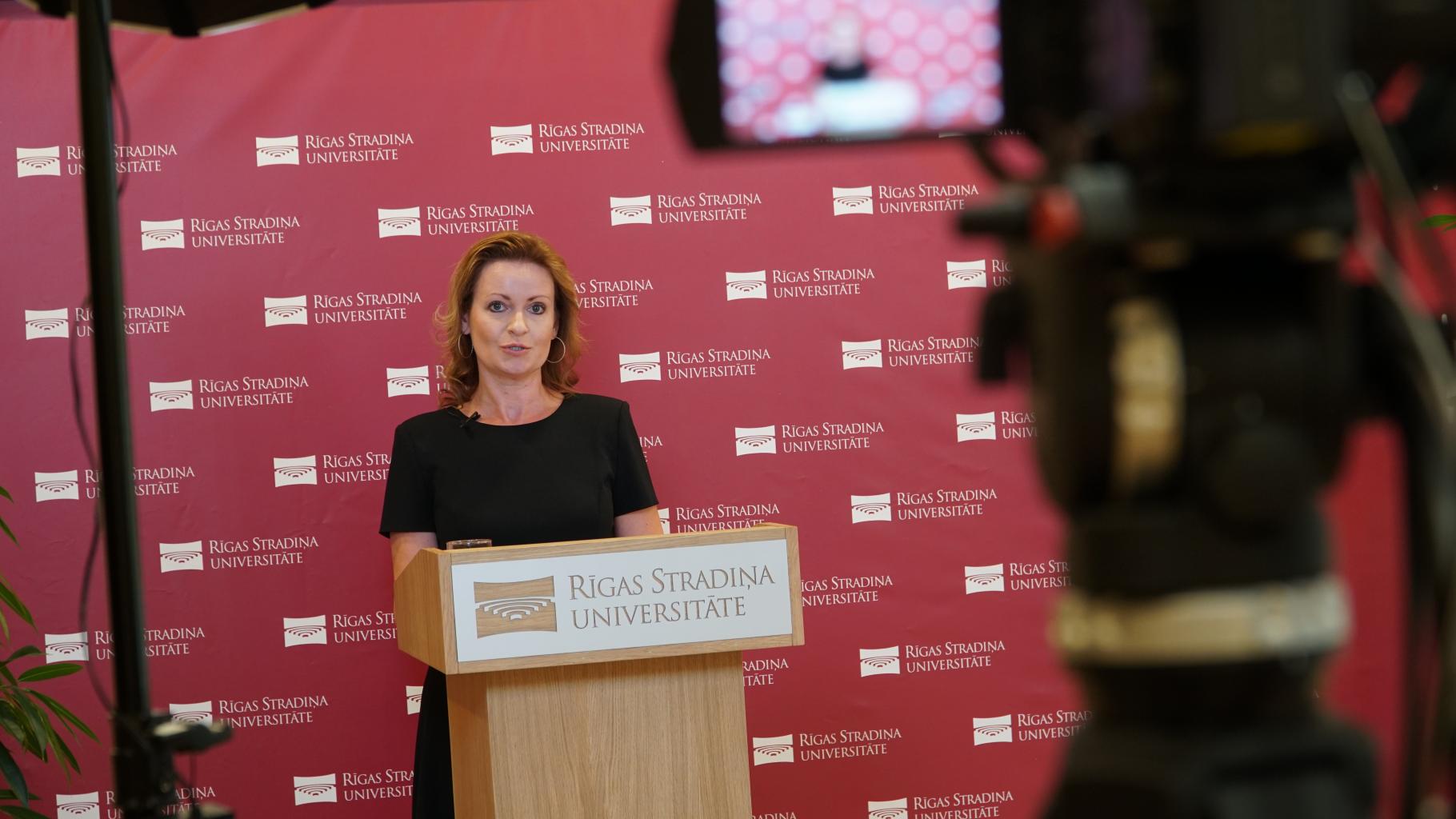RSU Participates in European Education Area 2025 Seminar
On Tuesday, 11 May, Baiba Pētersone, the Director of the Rīga Stradiņš University (RSU) International Department (ID), represented the university in the Building Bridges (European Education Area 2025) seminar. Pētersone shared the university’s experience of integrating international and exchange students during the pandemic.
The European Education Area 2025 is the European Commission’s ambition to ensure that all European citizens have access to quality education, seamless mobility between different national education systems and lifelong learning at all levels of education by 2025.
Stefan Zotti, Team Leader of the Strategy and Investment Unit at the Directorate-General for Education, Youth, Sport and Culture of the European Commission, spoke about the Commission's work building the European Education Area.
He highlighted the directions of the European Commission's work that are relevant to the field of higher education in particular: a European Degree, the European Universities Initiative and the legal status of the European Universities Alliance, the quality standards of joint study programmes, the European Student Card Initiative, the automatic recognition of education documents, micro-qualification programmes at universities and the European Tertiary Education Register for better integration of graduates in the labour market.
In the second part of the seminar, representatives for several universities presented their institutional experience of working during the pandemic, as well as looked at the impact of these experiences on higher education in the future.
Pētersone (pictured) spoke about the various virtual activities that the RSU ID has carried out that created an international environment at the university even though travel has been restricted.
She introduced participants to the university’s mentorship programme for international students, Orientation Week, seminars on work and time management as well as with integration activities outside studies, like the health hackathon, speed friending events, games, seminars in cooperation with foreign embassies in Riga, e-consultations, interactive social media groups and other events.
The presentation also focused on the institutional benefits of these activities, like creating a closer link between the university and international students, a greater involvement of university departments in the internationalisation processes, the acceleration of digitisation, learning new skills, crisis management and adapting to changing legislative requirements in higher education due to the state national emergency.
The seminar was attended by participants from the European Union and other countries and it was organised by the University of Applied Sciences Burgenland in Austria.
Related news
 RSU management discusses development of medical education cooperation at high-level meetings in Cyprus International Cooperation
RSU management discusses development of medical education cooperation at high-level meetings in Cyprus International Cooperation



